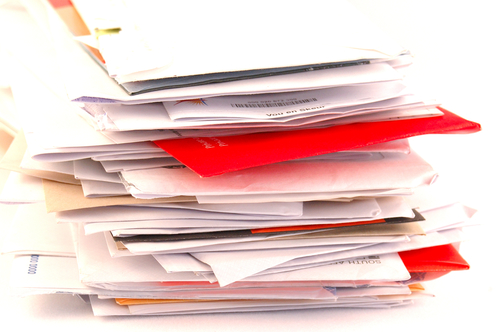
In normal circumstances, when you declutter using the KonMari method there are two key principles to bear in mind:
- focus on what you keep
- what you keep must either spark joy or be functional.
With this in mind, let’s focus on what paperwork you should keep. As most paperwork is unlikely to spark joy, let’s think in terms of its functionality.
What paperwork should you keep
The paperwork you need to keep will depend on the item, however, you can group these into three categories
Essentials that should never be destroyed
Paperwork in this category includes:
- your birth certificate
- your marriage certificate
- proof of change of name e.g. via deed poll
- your current passport
- your current driver’s license
- your car ownership documents
- your house deeds/lease or mortgage documentation
- legal documents such as wills, living wills, power of attorney
- social security documents and personal ID papers
- proof of ownership documents, for example share certificates, saving bonds
- proof of responsibility documents, for example loan and credit card agreements
Paperwork kept for insurance purposes
- The actual insurance policy for your house, car, pet, business etc.
- The invoices/receipts/proof of purchase for high value items where you would be required to provide proof of purchase in the event of an insurance claim e.g. engagement and wedding rings,
Paperwork kept for tax reasons
If you run a business then you are required by law to keep all documents for 7 years. (Note: this may be different in your part of the world.)
Saying this, when my husband set up a new business, this flagged up an old business that had not been closed down properly by the tax office. As a result, we were sent a tax bill for several thousand pounds. As we kept the original documentation, we were able to prove that their records were wrong. As it turns out, the correct paperwork had been filed with a different office.
When dealing with bureaucrats, it’s up to you to prove them wrong, because they will never admit that they made a mistake!
If you are an employee, then you need to keep payslips and expenses claims.
Paperwork related to home maintenance
Depending on which country you live in, when you sell your home, you may be asked for evidence of current running expenses:
- utility bills
- local tax bills
- warranties
- documentation related to home extensions, refurbishments, home improvements
Paperwork related to car ownership
Again, when you sell your car, you may be asked to provide evidence of:
- maintenance and service history
- insurance band
- car tax rate
Personal paperwork
Depending on where you live and where you are in your life, this will include:
- medical records
- medical insurance policies
- bank statements
- pension documents
- letters showing benefit entitlements e.g. child benefit, state pension
- contracts of employment, changes to employment
How long should I keep things?
This will depend on the item and its use.
- 3 months – bank statements that have been reconciled
- after 1 year – documentation that is no longer current e.g. insurance policies, utility bills
- up to 7 years – anything tax related
Where you have sold an item e.g. a house, car etc, then keep the
Disposing of paperwork
When disposing of paperwork, you need to consider the impact it could have if it falls into the wrong hands. For this reason, shred absolutely everything that has your name on:
- old bank statements, utility bills etc
- old receipts where your name and address are recorded
- documentation for the things that you have sold
Finally
We accrue a lot of paperwork in our lives, and most of it we don’t need to keep, however, as you can see, there is an awful lot that we do need to keep.
Useful links
- How long to keep tax records and other documents
- What documents should I shred and what should I keep
- Guidance from the Irish Revenue Office
Take care for now
Karen x
